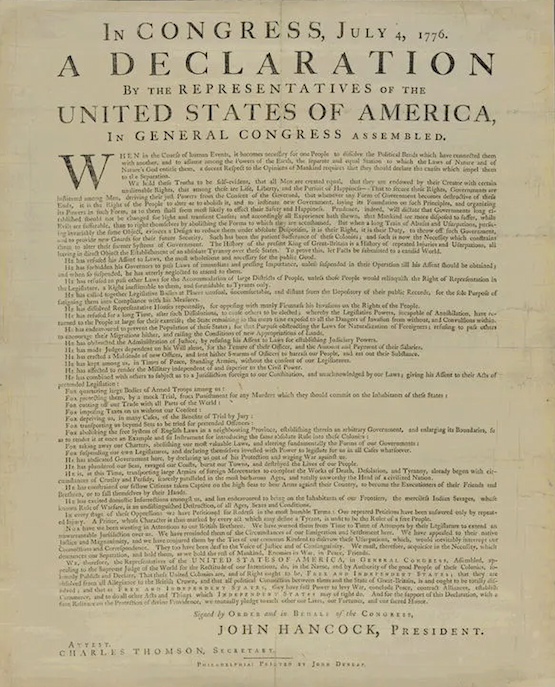Declaration of Independence
One of the most well-known historical documents in America is the Declaration of Independence. On July 4, 1776, the Continental Congress adopted the document, which had been principally written by Thomas Jefferson with assistance from other founding fathers including John Adams and Benjamin Franklin. The thirteen American colonies and Great Britain were cut off politically as a result of this historic declaration, opening the door for the creation of the United States of America.

Beyond its historical setting, the Declaration of Independence continues to be of vital significance in today's society. Its values and goals have influenced several liberation movements, sparked democratic fights, and provided oppressed peoples with a light of hope around the world. Its claim that "all men are created equal" and endowed with "certain unalienable Rights, that among these are Life, Liberty, and the pursuit of Happiness" echoes with the desire for freedom and independence that affects every one of us.
As you read, think upon the following: How does the Declaration of Independence influence how we view personal freedoms and rights? What can we infer about the duties and obligations of citizens in a democratic society from the Declaration of Independence? How does the Declaration's vision of equality conflict with the dominant structures and conventions of the day?